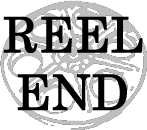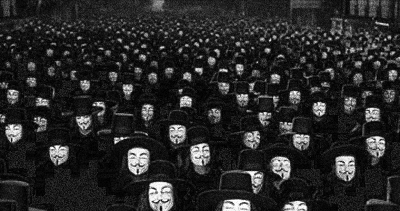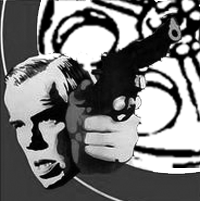 |
 |
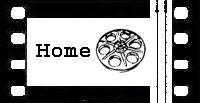 |
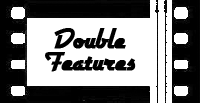 |
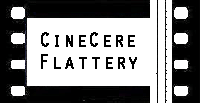 |
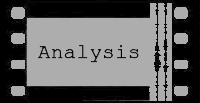 |
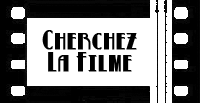 |
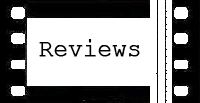 |
 |

Inside Al Pacino
(Continued)
I hate to do this because I said I never would, but I don't think one can examine what's going on in Inside Man without bringing up 9/11. Not only does Lee frame a brief hand-off of power from Keith to Ms. White in front of a We Will Never Forget sign; not only is Lee the only person who could challenge Scorsese for the title of Most New York Filmmaker; not only was Lee obviously affected by the WTC attack as exhibited by the shots of Ground Zero in The 25th Hour; but, as many a hack comic has pointed out, 9/11 was a huge turning point for American Race Relations in the Northern and Eastern states. A year ago I wouldn't have had to qualify that, but Hurricane Katrina has proven that the South didn't turn nearly as much. Now, has it turned for the better? That's not for me to say from out here in my West Coast Roadhouse, but I can say that the color of America's "Problems" (please note the sarcasm) has lightened.
It's not that the black civil rights movement won, although they obviously made some progress, but that the ruling class has been distracted to oppressing others more overtly. I don't think it's my place as one who writes about film to state weak and simplistic political opinions, but to accent those made by the films at hand. To that end, I would say that Inside Man makes some bold and often subtle political statements about the place that racial and national identities occupy in America, much more bold than Lee has been given credit for.
Opening only a week earlier from Inside Man, James McTeigue's V for Vendetta was hailed by the critics as a politically savvy action film with obvious and open attacks on the current US administration. While I by no means deny that V retrofitted Alan Moore's screed against Thatcher to a fairly simplistic slam on Bush (George Bush Ruins Another Movie @ Slate.com), the "political savvy" of V leaves more than a little something to be desired. On top of that, realize that Inside Man has been seen by most critics as a solid heist picture, with Lee tipping his hat only slightly to politics. There has been much bluster and debate as to whether or not V comes down on the side of Terrorism or on the side of Angels, because as we have all been taught long ago, there are two sides to every story. Not three. Not four. Not a dozen. Two sides. That is the myth that Lee seeks to burn - as he always has.
Look at Lee's virtuoso "director's solo" in Do The Right Thing: the various denizens of Lee's overheated Bronx neighborhood get right in the camera and start hurling some of the most entertaining, hurtful, well-written, small-minded epithets that you have ever heard. It starts out Italian-American vs. Black, but then brings in Koreans, Puerto Ricans, Police, and a rant against the Jews that eventually devolves into a personal attack on then-Mayor Koch. Lee has never been so simple as to put any of his real characters on the side of evil. People do what they do for different reasons, and sometimes they become antagonistic toward each other.
Back to Inside Man, the only character that could be accused of out-and-out evil is Mr. Case - and even he is an interesting case. As it turns out, the entire heist and investigation turns on Mr. Case's past. He reprehensibly made his fortunes on Nazi diamonds taken from the Jews, but in counterpoint to that, he has a reputation as a philanthropist - a case that is made most interestingly by focusing on the menorah-adorned plaque in his office. As he explains, he is a man who has done true evil and has spent the rest of his life trying to absolve himself of that sin. An interesting - if not wholly inappropriate - parallel to the Tookie Williams execution of last year could be made, but not here.
Our bank robber, wearing the Black Hat of the Yankees, robs only from the corrupt rich and only with the help of his thoroughly multi-ethnic crew. Our cop won't bury the case, but will take Ms. White's favors as well as a diamond for his girl from the loot. Our fixer will get you out of a jam for a price, but she doesn't have a side to take; just a payoff in cash and favors. None of these characters can be accused of being "Bad Guys" or pure white hat "Good Guys," just antagonists when their heads bump.
Bumping heads with Inside Man in the same way is its reciprocal multiplex-mate V for Vendetta. Both films utilize the gimmick of masked masses matching the forces against Law and Order. After taking over a television studio, V puts copies of his mask onto some of his hostages. In the ensuing chaos, innocents are shot by the jackbooted SWAT team. Later in one of the least elegant cinematic metaphors seen in awhile, the masses that have come around to V's way of thinking quietly march on the parliament and, in a kind of reverse "I am Spartacus" moment, unveil themselves with an ironically tightly choreographed wave action that seems to go against the film's supposedly anarchic leanings.
On the other hand, Inside Man's bank robbers pull a similar ruse to a different end. They use their masks not to make simplistic statements of adolescent rebellion and inverted unfinished anarchy symbols, but to keep the authorities off balance. When Dalton addresses the cop at the door just as the caper gets underway, he utilizes the anonymity of the mask and an indeterminate accent to throw the authorities off their game. Again, remember this is a post 9/11 movie, so a New York assumption of Middle Eastern terrorists is one of the many flavors in Lee's stew here - and one of the robbers' many weapons.
Crippling the police is a curious stubbornness exhibited best when Dalton stalls the cops by asking "Which weighs more, all the trains that pass though Grand Central Station in a year or the trees cut down to print all the US currency in circulation?" Captain John Darius, played by Willem Dafoe, answers right away that US currency is printed on cotton and so the trains weigh more. Captain Mitchell points out that Grand Central Station is a Post Office and not a train station, and that they both weigh the same. After Keith answers the riddle and Dalton requests sandwiches, John and the rest of the cops continue to argue as to why that was the right answer, and John refuses to admit that he was wrong to jump to his conclusion. John is presented as one of the ground troops. He stubbornly and indicatively sticks to his guns, even when he is wrong and the time for the answer has passed, paralyzing the cops to do anything until their hand is forced.
Once the police do decide to make a move, and the hostages and robbers alike come pouring out of the bank wearing the same jumpsuit and mask combinations, the cops panic. They have deemed live ammunition too dangerous, but nevertheless the images of SWAT officers shooting terrified citizens with rubber bullets, throwing them to the ground, and cuffing them are much more chilling than V's similar moments, even though V's scenes involve real bullets and death. Innocents shouting that they are American Citizens, lying prone in the street of what many feel is the most American city, at the hands of police that we have been given no reason to distrust, makes a more powerful point than any post-9/11 Bush bashing documentary ever could. The metaphor is always more powerful, and in this one, we are both disturbed and sympathetic.
They are tackling most of the hostage takers, but they are abusing an even greater number of victims in their wide net. They may be in the wrong, but these are not the villainous cops that choked Radio Raheem to death. These are Keith's fraternity brothers, some of whom display what I can only sardonically describe as "pragmatic racism." The cop who was shouted at in that unintelligible accent later tells Keith about having had a gun pointed at him by a kid; in his story, he stumbles over not using the racial slurs, which he obviously doesn't use out of hate, or at least not overt racist hate. It's stunning that a firebrand director like Spike Lee has come to the point where a scene like this, ostensibly about racial profiling and the weird line between good and bad cops, should be done in such a neutral and understated way.
These are just few of the aspects of Spike Lee's Inside Man that make it one the of the strongest genre pieces we've seen in a while and one of the more daring pieces of socially conscious filmmaking after a year of some of the most overt and safe message pictures. I didn't even get to the lie Dalton tells in the opening monologue, the two great uses of the "Spike Lee Shot" or even how Keith compares to Mookie, Mister Senor Love Daddy and Malcolm X, but I may have at least shed some light on an aspect or two in the film and begun to decode those Pacino references. Ya dig? Sho-nuff.
